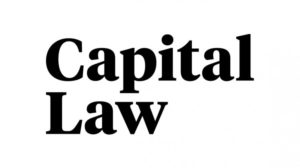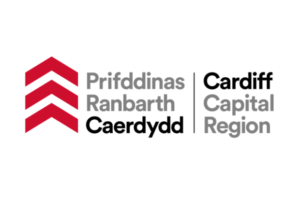The FinTech Five, Friends Edition – Friday 22nd October
22 October, 2021

Welcome to the FinTech Five, the part of the week where we take a closer look at the best articles, news, and features from over the past week from our FinTech Wales members.
1. Tech Nation opens applications for their Rising Stars 4.0 competition
First this week, Tech Nation is on a nationwide search for the UK’s brightest early-stage tech startups to join their Rising Stars 4.0 competition.
Designed to showcase the best of what the UK has to offer, there is no better place for tech startups to showcase their talent and innovation than with Rising Stars.
Businesses from England, Scotland, Wales, and Northern Ireland are invited to take part, stand out and shine bright in this exciting competition.
Applications close on 20th October, 5pm.
Click here for more information on Tech Nation’s website and how to apply for Rising Stars 4.0
2. Capital Law hosts online Breakfast briefings

Next this week, Capital Law is hosting (free) online breakfast briefings.
The remaining sessions are:
- Variation of contracts – In this session, Capital Law will give an overview of the issues employers need to be aware of when making changes to terms and conditions to avoid problems. Their specialists will also offer practical guidance on negotiating changes and reaching an agreement with your employees.
- COP 26 for Employers – “COP” stands for the “conference of the parties” and is a mechanism for the UN to bring states together to negotiate climate change. In this session, Kate Evans from Capital Law’s construction, energy and projects team and Rebecca Mahon from their employment team will look at what businesses across the UK are doing to achieve their own net zero targets, how businesses can retrofit energy efficient solutions, how to document your commitment to efficiency and what this means for your workforce.
- Immigration review – 1 year on –In this session, Capital Law will review the UK’s new immigration system one year on. They will also look at what has changed in the world of business immigration over the past 12 months. It is vital that businesses keep on top of these changes as the consequences of not complying with the immigration rules can be serious.
Click here for more information on Capital Law’s website on how to sign up
3. The CCR Cyber Game-changers Opening up a New World

Next, the digital world is both protected and enabled by cybersecurity. So, when Cardiff-based Wolfberry Cyber Limited were named the UK’s Most Innovative Cyber Security Company in June this year, it was a hugely reassuring vote of confidence in CCR’s cyber credentials – and a fitting testimony to the trailblazing, ground-breaking, out-of-the-box thinking of this remarkable company.
Beating off the competition from 23,180 nominations – finishing ahead of the very best Cyber enterprises from 32 countries across the planet – Wolfberry were commended for making “a huge difference to the world of cyber security”.
In a recent interview CCR caught up with Wolfberry CEO Damon Rands to discover the drivers behind his company’s success – exploring how their customer care, trusted advice and technical expertise has seen them grow a network of offices stretching from south east Wales to Dubai – and gauging how CCR’s Cyber capabilities measure in comparison to the rest of the world.
The article covers topics such as: making cyber security accessible, affordable – and understandable; being a business enabler, not a business blocker; helping organisations understand what they have and what they can do; and the amazing – and unique – cyber testbed in the CCR
Read the full interview on CCR’s website, here.
4. EY is now Carbon Negative

Next, EY is now Carbon Negative, a major milestone in its carbon ambition.
EY is delivering its four-point carbon ambition, launched in January 2021, and continues to actively reduce its absolute emissions in line with its Science Based Targets Initiative (SBTi) validated 1.5°C pathway.
This will bring EY to the more ambitious target of net zero in FY25, requiring EY teams to reduce their emissions in line with its approved science-based target, while continuing to offset more carbon than the remaining balance.
“As the risks posed by the climate crisis become ever clearer, business needs to change, and change fast,” says Carmine Di Sibio, EY Global Chairman & CEO.
“Immediate and collective action is needed to avoid the worst impacts of climate change. Net zero targets must be set and delivered, and those who have the ability to go even further must do so.”
To become a carbon negative organization, EY teams have invested in a carbon offset portfolio with South Pole that includes carbon removal projects.
“Carbon negative is when an organization removes even more carbon than it emits. It requires both the setting of a science-based target to reduce emissions to get to net zero and offsetting or removing even more of its unavoidable emissions,” says Steve Varley, EY Global Vice Chair – Sustainability.
“Even before an organization reaches net zero, it can proactively manage emissions beyond balancing them out at neutral.”
5. British Business Bank release report on ‘smaller businesses and the transition to net zero’

Last but not least, British Business Bank has released a report on ‘smaller businesses and the transition to net zero.’
This research report highlights the crucial role smaller businesses can play in driving the changes required in the UK’s transition to a net zero economy.
Using analysis from a new nationally representative survey of 1,200 smaller businesses and other Bank research activities during summer 2021, the report provides a snapshot of progress made by smaller businesses so far in their transition to net zero, while also looking ahead at how far is left to go.
It examines the actions smaller businesses have taken already to reduce their greenhouse gas emissions, as well as ones planned and considered. In addition, it explores the barriers to and enablers of further action, and smaller businesses’ approaches to financing actions so far and in the future.
Some of the key findings from the report are as follows:
- Smaller businesses account for around half of total greenhouse gas emissions from UK businesses
- Most smaller businesses are at an early stage in their transition to net zero
- Attitudes vary amongst smaller businesses with some more proactive than others
- The most commonly perceived barriers to action are around cost and feasibility
- Access to finance is part of the solution to drive more action
Until Next Time…
That’s it for this month’s Friends of FinTech Five. For more information on any of our Friend Members, visit our members directory and discover what’s new from the organisations helping the financial technology community to succeed throughout the region.